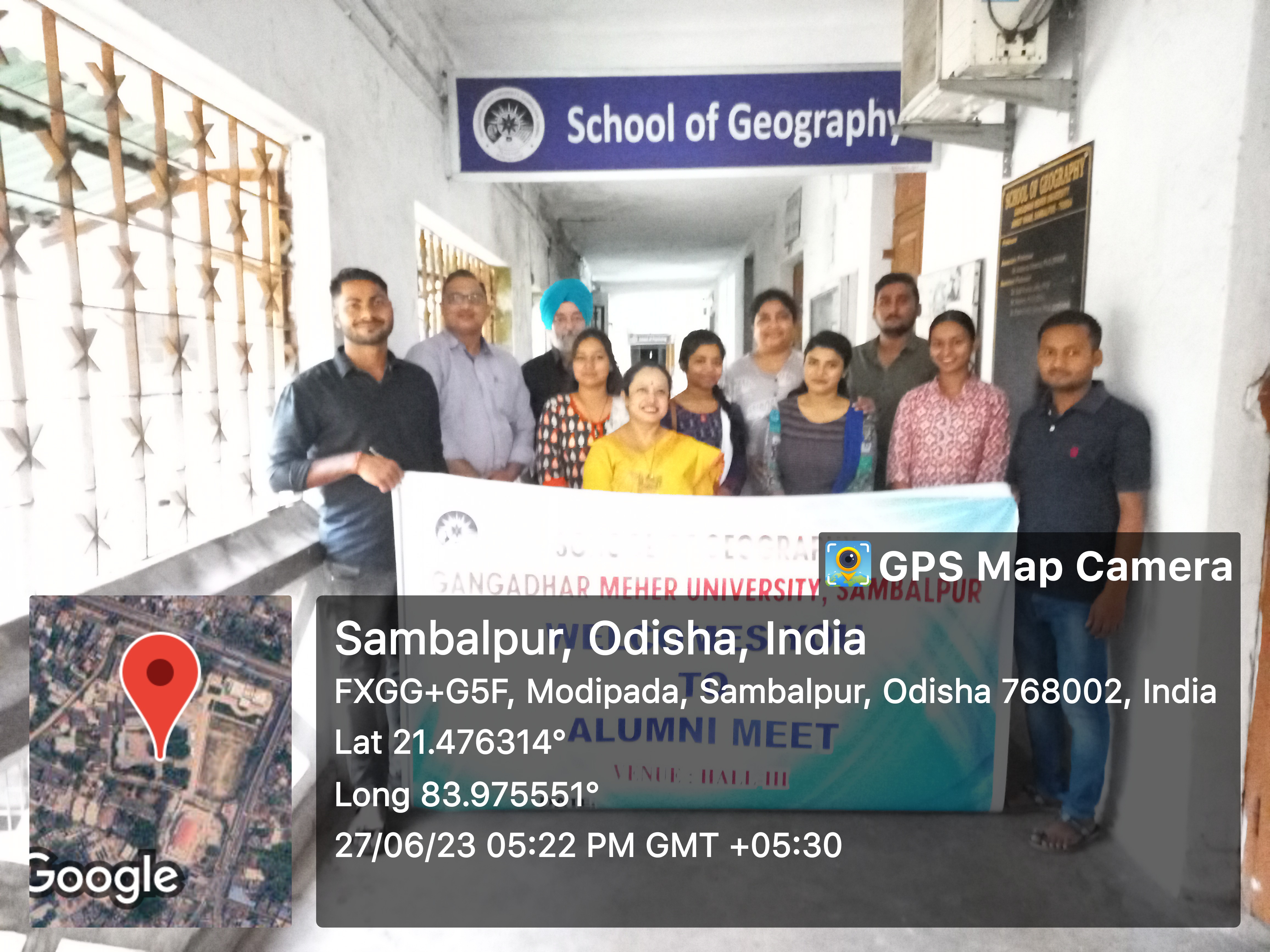



7077098547
arbind.78@gmail.com, asharma@gmuniversity.ac.in
View ProfileThe School of Geography was established in 1964 (the then-Department of Geography);with undergraduate study and an intake of 16. However, the teaching of geography as a subject was there in G.M. College prior to the inception of an independent Department of Geography. At that time, it was one of the few institutes that were imparting geography teaching in the entire state of Odisha, adjoining the Jharkhand region. Thus, the department has played a pivotal role in establishing geography as an academic discipline among the people of the eastern part of India in post-independence times. The geography departments expanded, and the popularity of geography also witnessed a remarkable increase in the coming decades. Thus, in the year 1985, postgraduate programmes in geography were introduced by the department. The Department contributed a lot in the area of cartography and human geography, focusing on social, cultural, and economic aspects of geographic study for the next three decades. Because of these contributions, the department was designated as the nodal center of Sambalpur University in 2010 to carry out our research work leading to a Ph.D. degree. The introduction of the M.Phil. programme with an intake of 10 seats is another milestone that the department has achieved prior to getting renamed the School of Geography at G.M. University in the year 2015. Full-time Ph.D. programmes were introduced in the School of Geography in 2020, followed by the opening of B.Sc. and M.Sc. programmes for students with a science background in the academic years 2021–22. Currently, the department has an intake of 32+5* (integrated B.Ed.) and 25 at the UG and PG levels, respectively. The School of Geography became more distinct entities within universities, gaining recognition as standalone departments. The school of geography has evolved over time to incorporate advanced technologies, including remote sensing, geospatial analysis, and web-based mapping, to address sustainability issues and environmental issues at a local to global scale. The school increasingly emphasizes experiential learning, community engagement, and practical applications of geographic knowledge. The able faculty members and staff of the school are working seamlessly to contribute meaningfully to the development of its students, the school, the university, and society as a whole.
The School envisions to become a centre of excellence for the study of spatial sciences by striving hard in developing its students as a productive global citizens with an understanding of the full scope and value of geography; and having a valued place in the country by addressing the regional to global issues through research activities.
School of Geography, GMU is committed to achieve its visions through measurable action in the form of following mission:
